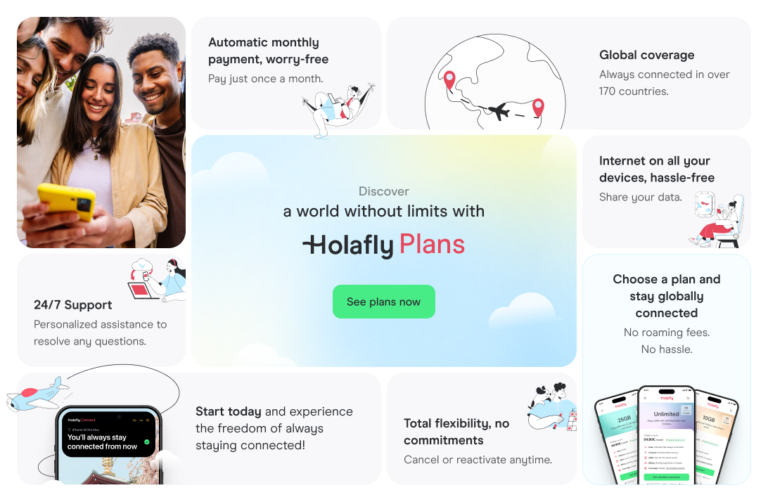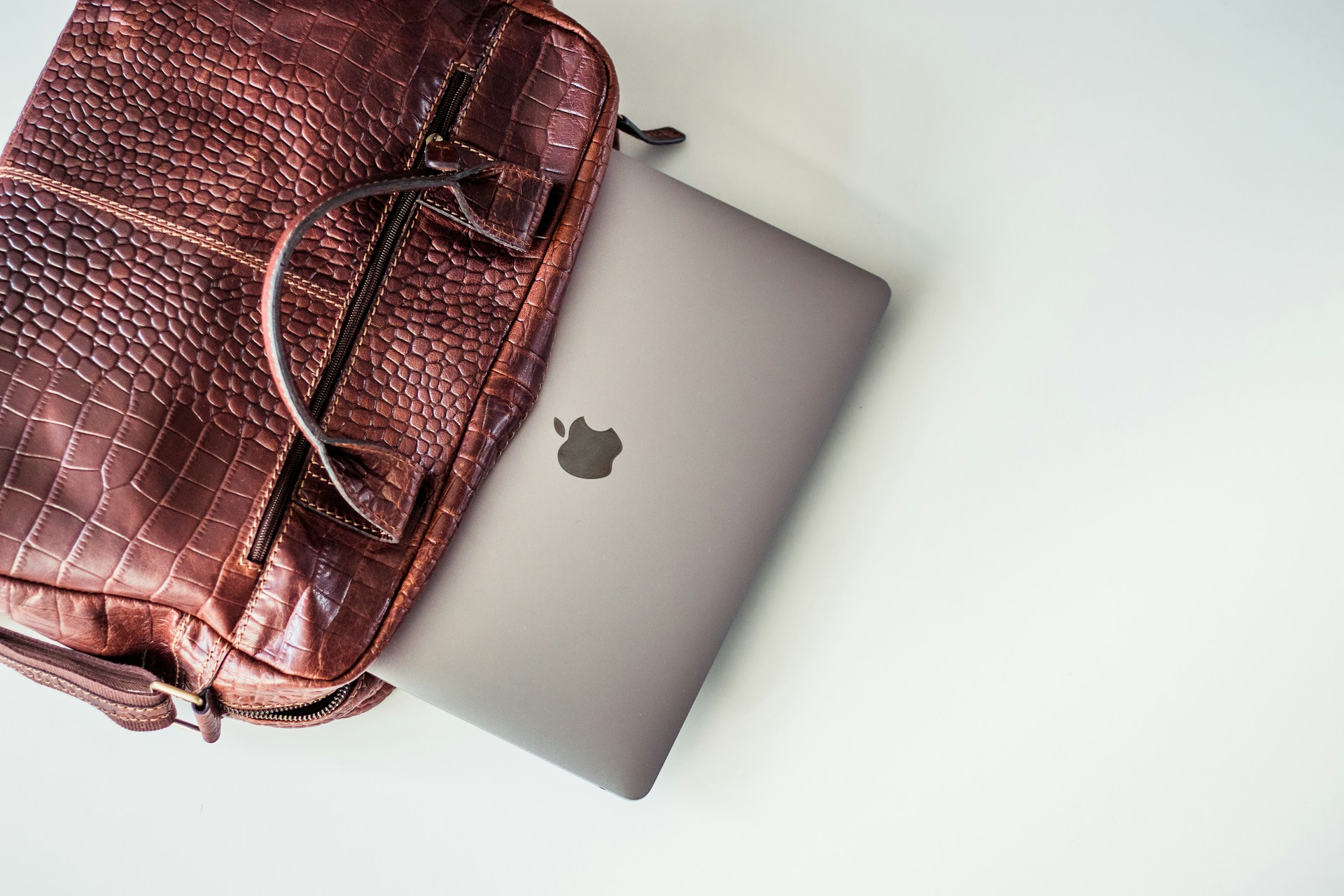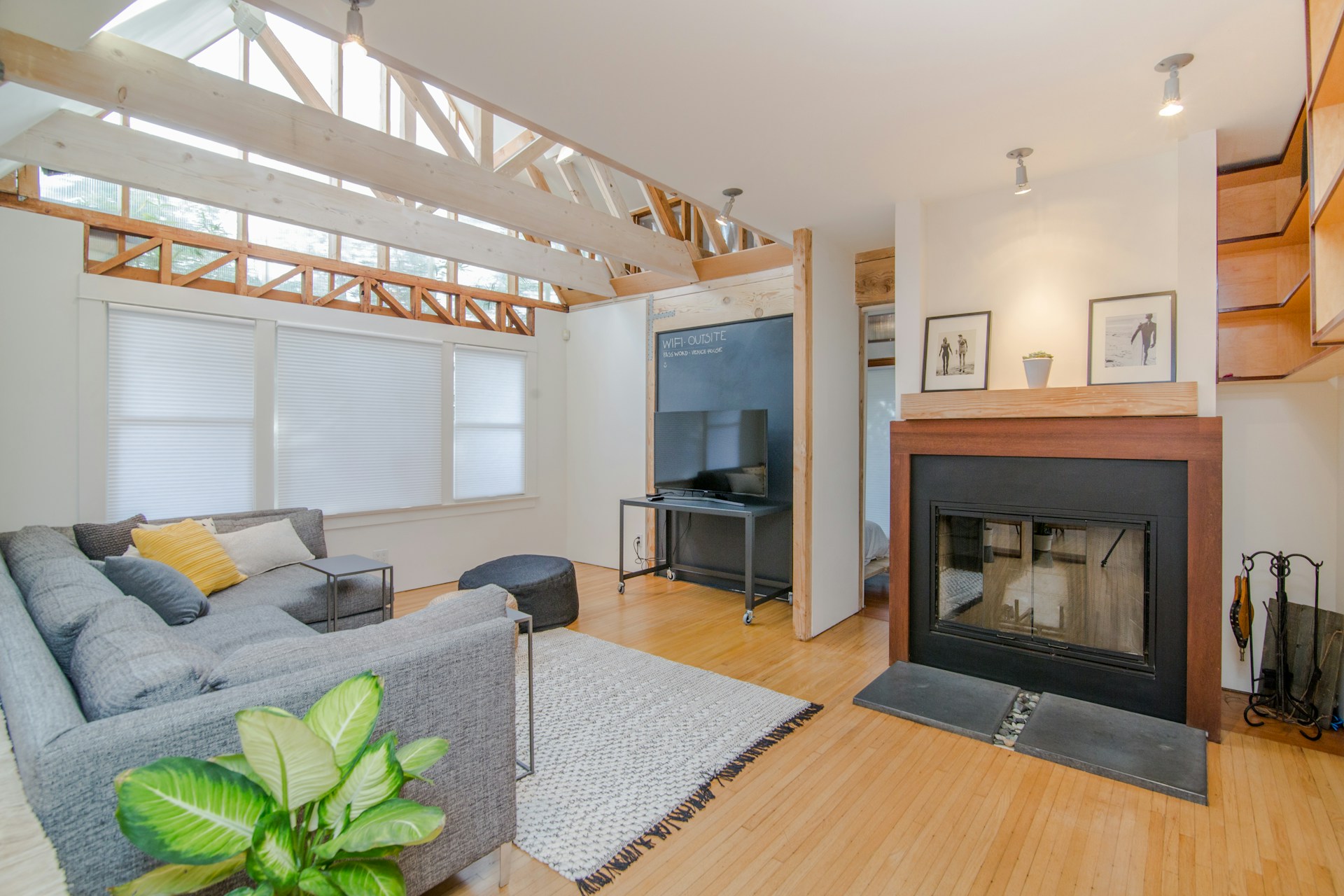Live in Australia: Advantages, disadvantages & costs
To live in Australia can be a great experience, but you should be prepared. Following this guide is a good first step.
If you’re thinking about moving to Sydney, Melbourne, Brisbane, or Adelaide, you’re in the right place. This article covers everything you need to know about what it’s like to live in Australia as a foreigner. You’ve picked a country known for its high quality of life and popularity among those looking to stay temporarily or settle down for good. That said, living in Australia also comes with its challenges.
Today, we’re diving into all of it. We’ll break down what defines Australia’s quality of life, how things work day to day, what costs you should be aware of, and what you’ll need to adjust smoothly and avoid any surprises.
Is moving to Australia worth it? Read on. We give you a complete and up-to-date overview so you can make an informed decision.
Quality of life in Australia
Australia ranks among the top countries in the world for quality of life. Its cities consistently lead global rankings for safety, access to services, natural surroundings, economic stability, and overall well-being. Daily life is enjoyable, work-life balance is valued, salaries are competitive, public services are excellent, green spaces are well-maintained, and diversity is deeply woven into the country’s social fabric.
But it also means adjusting to a demanding system, planning each step carefully, and accepting that, at first, the distance and cost can be challenging. On top of that, your experience will vary greatly depending on the city you choose, your budget, and the lifestyle you want to lead.
Public and private education
Australia is known for having one of the best education systems in the world, which is why it attracts hundreds of thousands of international students every year. With globally recognized universities and a strong academic reputation, it’s a top choice for those looking to study abroad.
By the way, if the idea of studying in Australia is tempting for you, we recommend you to read these articles from Holafly:
Schooling is compulsory from age six to sixteen, and each state runs its own system. Public schools are free for citizens and permanent residents, but international students without a student visa or residency are required to pay tuition fees.
Alongside public schools, there’s a wide range of private and religious schools that offer rigorous academics and a variety of extracurricular activities. If you’re looking into higher education, top choices include the University of Melbourne, the University of Sydney, and the Australian National University.
In addition, many institutions offer intensive English programs for foreigners who wish to learn or improve their English.
Safety in Australia
Few countries in the world can match Australia when it comes to safety. Crime rates are very low, and carrying firearms is strictly prohibited. Of course, like anywhere else, petty theft or isolated incidents can happen, particularly in touristy areas or poorly lit places.
That said, Australia is generally a very safe place to live. Walking alone at night, taking public transport, or leaving your bike outside are all just part of everyday life. The police are trustworthy and have a strong presence across the country. Big points for Australia!
Cost of living: Is it expensive to live in Australia?
We all know that the cost of living in Australia is high. However, the country boasts a strong economy and a dynamic job market. In fact, while many nations struggled through the global financial fallout after the pandemic, Australia has remained remarkably resilient. Its GDP has been steadily growing for 26 years straight.
This success comes down to several factors: Australia has a dynamic economy, one of the world’s most stable banking systems, a business environment that’s smooth and straightforward, and abundant natural resources that are well managed. On top of that, the country encourages entrepreneurship and is open to the world both in terms of exports and immigration.
The minimum wage is among the highest worldwide, currently over 24 AUD per hour ($16). This means that even a part-time job can earn you enough to cover your basic expenses.
Sydney and Melbourne are the most expensive cities, with one-bedroom apartments in central areas often costing over 2,000 AUD per month ($1,276). On the other hand, cities like Adelaide, Perth, and Brisbane are more affordable while still offering a great quality of life.
Everyday expenses in Australia—like grocery shopping, using public transport, or dining out—can be quite pricey compared to other countries. That’s why, if you’re coming in with foreign income or are a student relying on parental support, careful budgeting is essential.

Health system and medical care
Like in most countries, Australia’s healthcare system is a mix of public and private services. The public system, called Medicare, is top-notch and provides essential medical care for citizens, permanent residents, and certain visa holders.
Temporary visa holders don’t have access to Medicare and are required to get private health insurance that covers at least basic medical care, hospital stays, and emergencies. Our advice is to carefully compare options, since most insurers offer plans tailored to different visa types.
Both public and private hospitals are well-equipped, staffed by qualified professionals, and have reasonable wait times. In other words, you can feel confident that you’ll receive quality medical care in Australia.
Internet connectivity and technology
Internet connectivity in Australia is generally good, though it varies by location. In major cities, speeds are stable and more than enough for working online, video calls, or streaming without issues. Most households have plans ranging from 50 to 100 Mbps, and coworking spaces usually offer even faster connections.
Companies like Telstra, Optus, and TPG dominate the fixed and mobile internet market, with prepaid mobile plans starting around 15 to 30 AUD per month ($10-20), depending on the amount of data included.
Plus, Australia is fully digitalized: you can pay contactless almost everywhere, use apps for public transport, access government services online, and even get virtual healthcare from any city.
One smart way to take advantage of Australia’s strong internet network is with Holafly Plans. Their unlimited data plan gives you fast, reliable access without the expensive roaming charges or the need to hunt for Wi-Fi. And if you decide to travel to New Zealand or other nearby spots, the same plan keeps you connected across more than 170 countries worldwide.
Important: If you are a frequent traveler and want to stay connected without worrying about expensive roaming or looking for a new SIM at every destination, Holafly’s subscription plans are for you. With a single eSIM, enjoy internet in more than 170 countries for a fixed price and no surprises on your bill. Travel without limits and connect easily and securely! 🚀🌍

Advantages of living in Australia
Australia is one of those places that perfectly balances quality of life, opportunities, and a close connection to nature. If you’re thinking about moving, here are a few reasons why it’s definitely worth considering as your next home.
High quality of life
Year after year, Australia ranks among the top countries for quality of life worldwide. Its cities are clean, well-organized, and safe, designed for people to enjoy both work and leisure. Strong urban infrastructure, clean air, vibrant cultural scenes, and a solid work-life balance are some of its biggest assets.
Plus, even in big cities like Sydney or Melbourne, the pace of life is laid-back, with people often putting well-being and mental health ahead of stress.
Wages and working conditions are very good
You already know Australia offers one of the highest minimum wages globally. But good pay only matters if the working conditions are fair—and in Australia, they generally are. Even entry-level jobs, common among students and temporary workers, usually provide enough to cover living costs and put a little aside.
Labor rights are well protected by law, contracts are straightforward, and employers usually stick to the rules. The job market is vibrant and welcoming to international talent, especially in fields like tech, healthcare, education, and engineering. While you might start out working on a fruit farm, you’ll likely find opportunities that better match your goals.
Cities are safe, clean and orderly
Australian cities stand out for their safety, cleanliness, and reliable infrastructure. From public transport to green spaces, everything is designed to make daily life comfortable, easy, and enjoyable.
Public spaces are well kept, with bike lanes, clean beaches, parks in every neighborhood, and easy access to community services. Living in Australia means you can get around safely, enjoy the city’s outdoor areas, and trust that everything runs smoothly.
Breathtaking nature
If you love the outdoors, living in Australia will totally amaze you. One of the country’s biggest perks is its incredible natural beauty. From postcard-perfect beaches and national parks with hiking trails to waterfalls, deserts, and unique wildlife found nowhere else on Earth. Plus, it’s where the world’s biggest coral reef lives! It might seem like a lot to fit in one spot, but when you realize just how massive Australia is, it all makes sense.
In Australia, your free time can be just as rewarding. Surfing, hiking, picnicking, biking, kayaking, or simply watching the sunset are everyday pleasures here. Even in the heart of the big cities, nature is never far away.
Multicultural and inclusive society
Australia is a country shaped by immigration, with people from all over the world calling it home. Diversity is part of the national identity. Everyday life reflects a culture of inclusion, respect for different backgrounds, and openness to new ideas. No matter your beliefs or where you come from, you’ll find a welcoming place here.
That diversity shows up in everyday life, from multicultural neighborhoods and international cuisine to global festivals and government policies that actively support integration. For newcomers, this makes settling in feel a lot more natural and welcoming.
The health system and education are of the highest level
As we’ve mentioned, healthcare and education are two of Australia’s strongest foundations. Medical care is high-quality and widely accessible across the country. And while not every visa grants access to Medicare, private insurance plans tend to offer solid coverage at fair prices.
When it comes to education, Australia is a top choice for international students. Its universities consistently rank among the world’s best, and their programs are designed to open doors to real job opportunities in the country after graduation.

Disadvantages of living in Australia as a foreigner
There’s no doubt that living in Australia comes with plenty of perks. That said, there are also a few challenges worth keeping in mind before making the move. Being aware of them upfront can make the transition smoother.
Cost of living in major cities is high
Even with its high wages, Australia isn’t exactly a cheap place to live. Cities like Sydney and Melbourne can be particularly pricey. Rent tends to be the biggest expense, but everyday costs like groceries, transport, and services also run higher than in many other countries.
If you’re working with a tighter budget, think about settling in smaller cities like Adelaide, Hobart, or Canberra. They’re more affordable than the bigger hubs, yet still offer an amazing quality of life. You can also cut costs by sharing a home or teaming up with others for grocery shopping.
Migratory processes can be demanding
Australia has a well-organized and strict immigration system. Getting a visa often takes time and involves plenty of paperwork, medical checks, and proof of financial stability. Plus, not every visa lets you work, access public healthcare, or apply for permanent residency.
Before moving, make sure to reach out to the Australian consulate in your country to identify the visa that suits you best and understand all the immigration requirements. Checking the official government website can also help you avoid mistakes. No matter your approach, giving yourself plenty of time to plan is crucial.
Geographical distance is considerable
Australia is quite isolated geographically. Coming from the Americas or Europe, you’ll notice long travel times and expensive flights. On top of that, the time difference can make coordinating with family or colleagues abroad more complicated.
If you work remotely, plan your schedule ahead to stay in sync with different time zones. And if being close to home matters to you, keep in mind that traveling to and from Australia involves long and pricey flights.
Language and local accent can be a barrier
Even though English is the official language, many newcomers find the Australian accent and local slang quite challenging at first. So, it can take some time to catch informal conversations or keep up with local shows and news.
Give yourself some time to get used to the accent. Watching Aussie TV, chatting with locals, and taking English listening courses can really help. Don’t worry because most Australians are patient and friendly with people who are still learning.
Temporary visas have limited access to certain services
Not all visas offer the same benefits. For instance, if you come on a student visa, you won’t have access to Medicare and will need to get private health insurance. Plus, you’re limited in the number of hours you can work, which can make it tough to cover your expenses while you’re there.
So, is Australia a good place to live? Definitely. If you arrive prepared, with the right documents and an open attitude, you’ll discover a country that works well and warmly embraces newcomers. Above all, it provides real chances to develop, learn, and create a stable future.
Frequently asked questions about living in Australia
No matter your origin, Australia requires a valid visa for extended stays. Whether you want to work, study, or settle down temporarily or permanently, you’ll need to apply for the appropriate visa—such as a Working Holiday, student visa, Skilled Visa, or employer sponsorship. Each visa has different criteria like age, language proficiency, financial proof, or education, so it’s important to check the details thoroughly before applying.
The cost of living in Australia really varies depending on the city and how you manage your budget. On average, people typically need around 1,800 to 3,000 AUD ($1,150–1,900) per month to cover essentials like rent, food, transport, health insurance, and entertainment. Sydney and Melbourne tend to be pricier, while places like Adelaide or Brisbane are more affordable.
It really comes down to what you’re after. Sydney is perfect if you want a bustling international city with plenty of job opportunities. Melbourne is known for its vibrant cultural scene, coffee culture, and arts. Brisbane, Adelaide, and Perth offer a more laid-back lifestyle, affordable living, and great quality of life. Hobart and Canberra are the go-to if you’re looking for peace, nature, and safe surroundings.
Yes, but there are some limits. During the school term, you’re allowed to work up to 48 hours every two weeks, and during holidays, you can work full-time. Many students take on jobs in hospitality, retail, delivery, or customer service to help cover their expenses.
Housing is one of the biggest expenses in your monthly budget, but costs vary a lot depending on the city and the kind of place you choose. For example, renting a one-bedroom apartment downtown in Sydney can run about 730 AUD ($465) per week. Meanwhile, cities like Brisbane and Adelaide offer more affordable options, with rents around 450 AUD ($290) per week in central areas.





 Language
Language 


















 No results found
No results found








